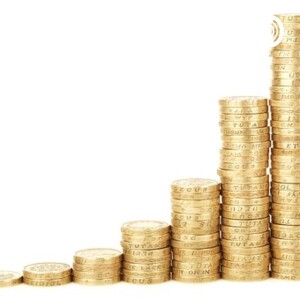
What Are NFTs And Why Should You Be bothered About Non-Fungible Tokens?
 2021-06-23
2021-06-23
In March 2021 Artnet News reported the sale of a piece of NFT digital art by Beeple’s which sold for $69 million at Christie’s auction. The artist, whose real name is Mike Winkelmann, jumped to number three on the list of most expensive living artists at auction.
An NFT, or Non-Fungible Token, is a type of digital asset, like a representation of piece of physical art or music, that you can own and trade, typically for between $40 and $200. A fungible asset in economic terms contains units that can be readily interchanged - like money. A non-fungible asset is a unique one-of-a-kind asset, like a work of art.
NFTs are bought and sold online, often with cryptocurrency, and they are encoded with the same underlying blockchain software technology as many cryptos.
So why would anyone want to own a digital asset, effectively a photograph of a piece of art, when they could take a photograph themselves?
Firstly, this new creative enterprise goes far beyond owning a photo of a painting. And let’s face it, millions of people buy prints, which are copies of original art, to hang on their wall.
Entrepreneur and influencer Gary Vaynerchuk said NFTs and the blockchain technology around them as something that will influence everything we do on the Internet.
Gary compares blockchain technology to the early stages of the internet when people thought that it was just a search engine or an online encyclopaedia.
I remember about 15 years ago reading an interview with Lord Sugar, who made his fortune manufacturing Amstrad computers, describing ordering something online as a waste of time and commenting that it would be quicker to go to the shop and buy it!
In the future, Gary predicts people will carry around digital wallet containing digital assets, ID and personal records and currency.
One wonders how many people will be left behind by the pace of change. Governments are concerned about the number older and poorer people unable to access essential services because they are not online or do not own a smart phone.
With the growing demise of the traditional High Street travel agent, it will soon be difficult to book a fight unless you have internet access.
Banks are trying to phase out cash and Sweden is one of the first countries to move towards a cashless society. Central Bank Digital Currencies (CBDCs) are already being planned in major countries and the EU.
The increase in speed of new developments in technology means we have to continue to study and keep ourselves up-to-date. This doesn’t mean going back to school or university, although I would recommend formal or vocational study if you want to change careers, and you could just involve 30-60 minutes a day reading online, listening to podcasts or researching videos on YouTube.
I read a statistic many years ago that only 10% of people do any further study after leaving school or university. Is it a coincidence that those who do study tend to be in the top 10% income bracket? Brian Tracy said that reading for 30 to 60 minutes a day will make you an expert in your field within six months and could get you to degree level within 2 to 3 years.
If you enjoyed this and found it helpful, please like and share with your friends and follow me on social media to give more people free value.
I’m offering a free Wealth Accelerator discovery coaching call to three people this week - CLICK HERE TO BOOK YOUR FREE CALL https://bit.ly/3zJ21GY
More Episodes
 2023-11-12
2023-11-12
 2023-11-12
2023-11-12
 2023-10-29
2023-10-29
 2023-10-29
2023-10-29
 2023-10-02
2023-10-02
 2023-10-02
2023-10-02
Create your
podcast in
minutes
- Full-featured podcast site
- Unlimited storage and bandwidth
- Comprehensive podcast stats
- Distribute to Apple Podcasts, Spotify, and more
- Make money with your podcast
It is Free
- Privacy Policy
- Cookie Policy
- Terms of Use
- Consent Preferences
- Copyright © 2015-2024 Podbean.com




